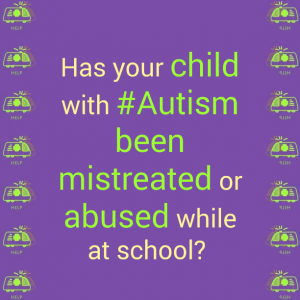Welcome to the very first edition of Voices of #Autism and Special Needs Parenting. This something new that I’m trying out and I really hope to see it take off. Basically, I’m helping others to share their stories, experience and let their personal voice be heard.
This is so important, at least in my opinion, because it helps to demonstrate the profound and dynamic difference there with #Autism, when going from person to person and family to family.
Not everyone has the same experience, even with the same diagnosis.
This is where #Autism Awareness, in it’s current form is broken. Not enough people recognise that no two people with #Autism are the same.
Far too many assumptions are made.
In the first of many voices, I would like to share Brian W’s experience and opinions.
Episode 1:
Feeling Alone in the Autism Internet Community
My daughter is autistic. No doubts. After years of learning to cope, I turned to the autism internet community thinking it would help. But I feel alone.
Maybe because my autistic child is a girl. Maybe because she doesn’t speak. Maybe because she is a long way from “normal”. Maybe because she isn’t main-streamed. Maybe because she is 5 years old.
My perception of the internet community is of higher functioning, pre-teen boys. And if that perception is correct, fair enough because that may well be the majority. But being a minority of a minority, makes me feel like an outsider. My daughter is not like your son or your daughter or your grandchild.
But maybe the autism community can recast itself to be more inclusive? Whilst I cannot relate to a teenage Asperger’s girl who is struggling with the social mores of high school, I can relate to anguish her parents feel.
The need to help their child, their hopes for her, their fears for her. If the parents and carers of the autism community can speak more regularly in terms of themselves rather than their children, their experiences can be shared broadly across whole autism internet community.
-Bryan W.


Hi Bryan,
I share your feelings of isolation. The autism community tends to present high functioning 11-14 year old boys as the face of autism, which leaves anyone who doesn't fit that extremely limited picture feeling like they are on the fringes. But know that you are not alone! I have a gorgeous 6 year old daughter who is autistic. After 3.5 years of extremely intensive early intervention therapy, she is still struggling with emerging communication skills. She, too, feels a LOOOOONG way from "normal". She is in a mainstream school only because that is the mandate of our community where possible, so she has a 1-1 aide who flexes her in and out of the classroom as needed for her coping skills. This is not a child struggling to recognize social cues, or having some trouble with sensory overload. We are talking about severe delays across several areas, including little things like communication, toileting, and recognition of danger! I struggle when people try to preach at me about "embracing my daughter's autism" when autism left their child "quirky" and mine PROFOUNDLY delayed and suffering. She smashes her head against the floor, and can't even express to me WHY she feels the need. (An autistic girl who DOES have communication tells me that smashing her head helped to relieve the awful pressure in her skull) I think part of inclusion needs to be understanding, as Rob says, that everyone is different, autism or not, and just because this is the "brand" of autism you experience, doesn't mean that that's the only experience anyone is having. The common factor of wanting the best for our precious kids, and supporting each other should be our focus.
@Jenn50 I couldn't agree more. Well said.